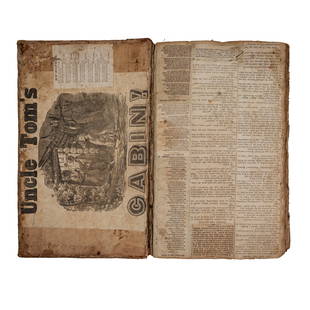

 Discovery- InteriorsBonhamsSponsored.Your ad here?
Discovery- InteriorsBonhamsSponsored.Your ad here?





 Discovery- InteriorsBonhamsSponsored.Your ad here?
Discovery- InteriorsBonhamsSponsored.Your ad here?




[Autographs & Manuscripts] Law, John Manuscript Document, signed
Similar Sale History
View More Items in Books, Magazines & PapersRelated Books, Magazines & Papers
More Items in Books, Magazines & Papers
View MoreRecommended Collectibles
View More
![[Autographs & Manuscripts] Law, John Manuscript Document, signed](https://p1.liveauctioneers.com/65/259470/135047487_1_x.jpg?quality=1&version=1661539042&width=486)
![[Autographs & Manuscripts] Law, John Manuscript Document, signed](https://p1.liveauctioneers.com/65/259470/135047487_1_x.jpg?quality=80&version=1661539042)
Item Details
Description
A rare bill of exchange signed by John Law, architect of one of the earliest financial crises, the Mississippi Bubble
Paris, September 10, 1718. One oblong sheet, 3 3/4 x 10 3/4 in. (95 x 273 mm). Manuscript bill of exchange in French and Italian, signed by John Law ("Law"), promising to pay five hundred golden pistolles to the French Ambassador to Spain, Monsieur Le Duc de Saint-Aignan (Paul-Hippolyte de Beauvilliers), in fifteen days, in money received from Monsieur l'Abbé Dugarané on account of Messieurs Cambi and Spinelli, bankers from Madrid. Creasing from contemporary folds; a few small open tears, bottom left, affecting a few letters in "Messieurs" and "Bankers"; scattered spotting to recto; scattered minor edge-wear. Lot includes an engraved portrait of Law.
A rare document, signed by Scottish economist and financier, John Law (1671-1729), during his meteoric rise over control of the French economy, and two years before he brought it crashing down with the bursting of the Mississippi Bubble.
When Law signed this bill of exchange to the French Ambassador to Spain, the Duke of Saint-Aignan (1684-1776), in September 1718, his trading company, the Compagnie d’Occident (Company of the West) had just been awarded a lucrative nine-year monopoly over the tobacco trade in the French Empire--a significant step leading up to his control of the reins of the French economy. The previous two years had seen Law's novel financial ideas put into practice by the French government, then under the control of the Regent for Louis XV, the Duke of Orleans. Although Law had pitched his then-unorthodox ideas to the French government in previous years, following the death of King Louis XIV in 1715, they were given a second chance. In order to reform France's struggling finances, in 1716 Law established the Bank Generale--the first financial institution of its kind to issue paper money--and took control of the Mississippi Company, a trading company in French Louisiana. In 1717, the Company was given a monopoly over all trade with France's Canadian and Louisiana colonies, and Law changed its name to the aforementioned Company of the West. By 1719, Law's bank was nationalized by the French government as the Bank Royale (thus guaranteeing their bank notes), and the Company of the West took over France's trade with China and the East Indies. The new corporate conglomeration, called the Compagnie des Indes (Company of the Indies), controlled all international French trade, and at the time was one of the most expansive trading companies in the history of Europe. By the fall of 1720, the Company purchased the right to mint coins and collect taxes in France, and essentially controlled all of France's domestic and foreign finances. In an amazingly short five years, in 1720 Law reached the height of his political power when he was appointed to be France's highest administrative officer, Controller General of Finances.
Law's quick ascendancy within the French government was met with an even quicker fall. To fund the expanding operations of his Company, Law simultaneously issued more Company stock and injected more paper money into the economy to purchase it. A speculative frenzy ensued that touched all levels of French society, creating millionaires overnight (a term coined to name those who benefited from Law's system), and inflated a financial bubble. At its height shares in the Company were valued at an astonishing 10,000 livres each, after rising at a rapid pace for over a year from their opening of 500 livres. By 1720, Law's system began to collapse as share prices plummeted due to rampant sell-offs, and inflation and currency devaluations left people with worthless paper money. The economic crash became known as the Mississippi Bubble, and it left thousands financially ruined and the French economy in a shambles. Law was dismissed by the Duke at the end of 1720, and in December, he fled the country with creditors and those he left financially ruined in pursuit. He first travelled to Brussels, and then sought refuge in Venice unitl his death in 1729.
Rare, documents signed by Law seldom come to auction.
Buyer's Premium
- 31% up to $600,000.00
- 26% up to $4,000,000.00
- 20% above $4,000,000.00
[Autographs & Manuscripts] Law, John Manuscript Document, signed
Shipping & Pickup Options
Item located in Philadelphia, PA, usPayment

Auction Curated By


















![Pennsylvania Assembly Plans to Seek the "Voice of the: Pennsylvania Assembly Plans to Seek the "Voice of the People" for or against Convention for Revising State Constitution, then Reverses [REVOLUTIONARY WAR.] JOHN BAYARD, Manuscript Document Signed, Mar](https://p1.liveauctioneers.com/6306/183002/92073393_1_x.jpg?height=310&quality=70&version=1603388326)
![[Autographs & Manuscripts] [Charles X] Philippe, Charles, Count d'Artois Manuscript Document, signed: [Autographs & Manuscripts] [Charles X] Philippe, Charles, Count d'Artois Manuscript Document, signed Versailles, January 1, 1776. Two sheets folded and tied with silk ribbon to make eight pages, 14 3/](https://p1.liveauctioneers.com/65/259470/135047484_1_x.jpg?height=310&quality=70&version=1661539042)










![[KENTON, Simon (1755-1836).] An 1809 document signed by Simon Kenton's lawyer, Joel Walker, and: [KENTON, Simon (1755-1836).] An 1809 document signed by Simon Kenton's lawyer, Joel Walker, and another signed by his brother, John Kenton, in 1812.WALKER, Joel. Manuscript receipt signed ("Joel Walke](https://p1.liveauctioneers.com/197/309287/165438706_1_x.jpg?height=310&quality=70&version=1699649440)
![[SOULT NICOLAS JEAN DE DIEU]: (1769-1851): [SOULT NICOLAS JEAN DE DIEU]: (1769-1851) Marshal of France, Duc de Dalmatie. An excellent manuscript document, nineteen pages, folio, July 1813, signed by Fririon, Secretary of the War Minister, to M](https://p1.liveauctioneers.com/1458/151591/76528062_1_x.jpg?height=310&quality=70&version=1570127208)













































![George Washington Signed Discharge: Partly printed discharge document signed by George Washington, as Commander in Chief of the Armies of the United States. Newburgh, [New York], 4 January 1783. 1 page, ## x ## in. Undersigned by Washin](https://p1.liveauctioneers.com/7226/322253/173251475_1_x.jpg?height=310&quality=70&version=1710004847)


